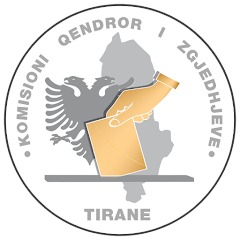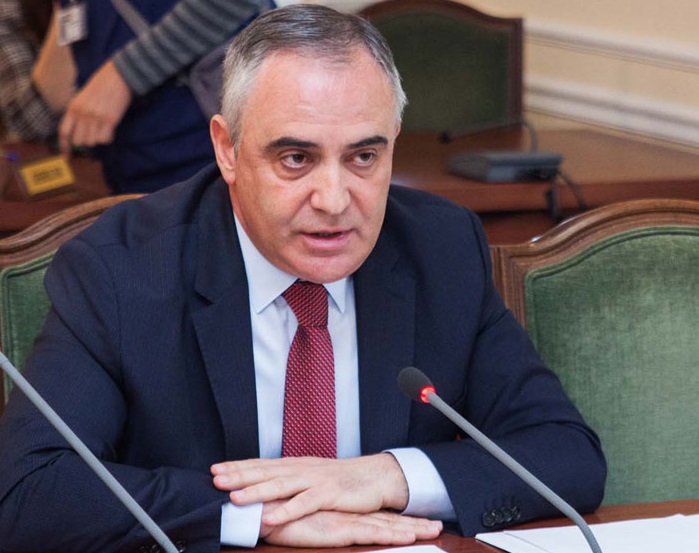By Jona Plumbi
The registration of the diaspora for voting in the May 11, 2025 elections has created confusion regarding the role political parties should and can play in this process. The Electoral Code, while establishing the technical process for diaspora registration, does not provide specific regulations concerning political involvement, which has led to various claims being raised.
One such claim was made by Florian Haçkaj, a representative of the movement ‘Diaspora for a Free Albania.’ In a television appearance, he called the involvement of the ruling party and mayors in the registration of the diaspora on the Central Election Commission’s portal a violation of the law and electoral regulations.
Haçkaj criticized the participation of the Mayor of Korça, Sotiraq Filo, in the overseas voter registration process and raised concerns that such partisan assistance violates the protection of voters’ personal data.

‘Article 328, point a) of the Penal Code specifically addresses the misuse of the administration for electoral gain. It is unacceptable and illegal in any normal country for Mr. Niko Peleshi to appear alongside the Mayor of Korça in a studio—whether voluntarily or paid by Alba Service in Thessaloniki, I don’t know—and show, on video, the entire process of sitting people in front of a screen and registering them in the PER system, which is entirely private. This means that someone else opens the code, accesses their account, takes their ID card number, and this is done by public officials,’ said Florian Haçkaj from Diaspora for a Free Albania.

*Image from the video published by Niko Peleshi showing the registration of Albanians in Thessaloniki on the CEC platform
Milva Ikonomi, a Socialist Party MP, stated that the diaspora registration process is completely normal.
‘The process of providing assistance for registration is one that political parties are responsible for because the creation of the diaspora register is happening for the first time,‘ said Milva Ikonomi, SP MP.

Several government cabinet ministers have also been engaged in this registration process abroad.

*image from the video published by Minister Mirela Kumbaro during her trip to Athens for the registration of overseas voters
Official Information
In light of this, Faktoje requested information from the Central Election Commission and the Commissioner for the Protection of Personal Data on what political parties are allowed and not allowed to do in this registration process.
‘The Electoral Code of the Republic of Albania and the bylaws issued by the CEC do not specify any rules or restrictions regarding the assistance that overseas voters may receive during the registration process on the PER platform.’ – CEC for Faktoje

When asked by Faktoje whether the involvement of mayors in registering overseas voters during official working hours violates the Electoral Code or CEC decisions, the CEC stated that ‘there is no legal provision addressing this.’
Regarding the technical aspect of registration, the CEC informed Faktoje that there are no regulatory or technical restrictions on the number of voters who can be registered from the same computer.
Protection of Personal Data
In response to concerns that this diaspora registration process, facilitated by political parties, could compromise personal data privacy, Faktoje requested clarification from the Commissioner for the Protection of Personal Data.
‘Access to voter data is only considered lawful if carried out in compliance with the provisions of the Electoral Code of the Republic of Albania.’ – Commissioner for the Right to Information and Data Protection for Faktoje.

‘According to the Law on Personal Data Protection, accessing such information constitutes data processing, which is legitimate only if it meets one of the conditions set out in Article 6 of the law. This article specifies that personal data may be processed solely to fulfill a legal obligation of the data controller,’ the response further clarified.
Given that the Electoral Code does not explicitly regulate the assistance provided to voters abroad, such access to data may be considered unlawful.
Public Statement by the CEC and the Data Protection Commissioner
A few days after responding to Faktoje via email, the Commissioner for the Protection of Personal Data, Besnik Derivishi, and the State Election Commissioner, Ilirjan Celibashi, issued a joint public statement.
They underlined that ‘political parties and relevant organizations must collect and process only the data strictly necessary for the voter registration process‘.
‘Citizens must be transparently informed about how and for what purposes their data will be used. The collected data must be safeguarded with proper technical and organizational measures to prevent unauthorized access, misuse, or destruction. Additionally, data gathered for voter registration must not be repurposed for political campaigning without the citizen’s explicit and informed consent‘- the statement added.
In this statement, the processing of data by political parties, although not provided for in any Albanian law, has been deemed possible by the commissioners when it comes to the purpose of registering voters from abroad.
What Experts Say
According to researcher Afrim Krasniqi, the absence of clear legal regulations has created a situation where officials’ involvement in the diaspora registration process is seen as an ethical issue rather than a legal violation.
The Electoral Code prohibits the use of public administration resources during election campaigns within official working hours. However, under the Civil Servant Law, elected officials—such as the Mayor of Korça—are not classified as part of the public administration.
‘I believe this is a clear legal violation because, while an ordinary citizen without a political position is penalized for engaging in such activities during working hours, high-ranking officials who are elected politically, on the other hand, are allowed to do so. They act within official hours, use state resources, and misuse their positions in the interest of the campaign‘, said Afrim Krasniqi from the Institute of Political Studies.

The Electoral Code prohibits the use of public administration resources—such as funds, materials, and personnel—for the benefit of electoral subjects. However, for this to be effectively monitored, there would need to be real-time transparency from institutions and political parties.
Krasniqi emphasizes that this transparency should have started on January 11, when the diaspora voter registration process began. It should have included details such as the mayor’s agenda, his involvement in the campaign and electoral activities, the personal and institutional financial costs incurred, and other public data.
This level of transparency, he argues, would allow civil society and the public to assess whether an official is abusing their position.
‘We also have ministers who, based on social media monitoring, appear to spend more time abroad than in Albania while still holding office. In a well-governed country, this would not be tolerated. In such a country, officials in these positions would be expected to resign or suspend their duties until the election campaign concludes,’ Krasniqi added.
The organization Diaspora for a Free Albania informed Faktoje that they have filed complaints regarding these activities with the General Prosecutor’s Office and the Special Anti-Corruption Structure (SPAK).
Conclusion
The introduction of this new element in the May 11, 2025, elections—combined with the absence of clear legal provisions—has created a legal vacuum concerning the electoral activities of officials abroad and the handling of voter data. This raises serious concerns about the legitimacy of such actions.
Considering the available data, official statements, and expert analysis, the claim made by Socialist Party MP Milva Ikonomi—that political parties assisting voters abroad in the registration process is entirely normal—will be rated as partly true.










